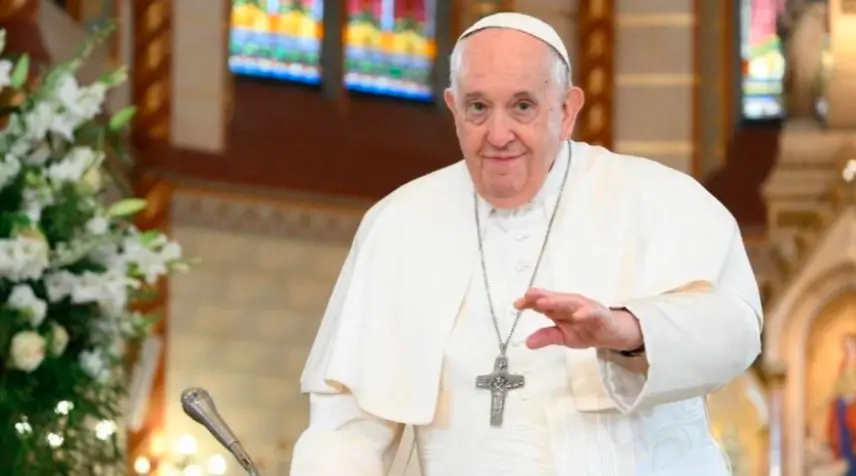The Vatican said on Monday (18), in a landmark decision approved by Pope Francis, that Roman Catholic priests can administer blessings to same-sex couples as long as they are not part of regular Church rituals or liturgies.
A document from the Vatican’s doctrinal office, which effectively reversed a statement that the same body had issued in 2021, says that such blessings would not legitimize irregular situations, but would be a sign that God welcomes everyone.
However, the text points out that it should in no way be confused with the sacrament of heterosexual marriage.
The document stresses that priests must decide on a case-by-case basis and “must not prevent or prohibit the Church’s closeness to people in all situations where they can seek God’s help through a simple blessing”.
The Pope hinted that an official move on the issue was in the works in October, in response to questions put forward by five conservative cardinals at the start of a synod of bishops at the Vatican.
Although the previous response was more subtle, the eight-page document released on Monday (18), entitled “On the pastoral meaning of blessings”, spelled out specific situations.
An 11-page section was entitled “Blessings of couples in irregular situations and same-sex couples”.
The Church teaches that same-sex attraction is not sinful, but homosexual acts are. Since his election in 2013, Francis has tried to make the Church more welcoming to LGBTQIA+ people, without changing the institution’s moral doctrine.
Father James Martin, a prominent American Jesuit priest who ministers to the LGBT community, called the document “a major step forward in the Church’s ministry” to them.
In a publication on X Martin said that the document “recognizes the deep desire of many Catholic same-sex couples for the presence of God in their loving relationships,” adding that “along with many priests, I will now have the pleasure of blessing my friends in same-sex unions.”
Opposition from conservatives
Monday’s decision will certainly meet with opposition from conservatives, who already criticized the pope when he made his first comments on the subject in October.
Ulrich L. Lehner, professor of theology at the University of Notre Dame in the United States, said that the new orientation of the doctrinal office “invites misunderstandings and will sow confusion”.
Expressing concern that some bishops would use it as a pretext to do what is explicitly forbidden, the professor added: “it is, and I hate to say it, an invitation to schism.”
The document, whose Latin title is Fiducia Supplicans (Supplicant of Trust), points out that the form of the blessing “must not be ritually fixed by the ecclesial authorities in order to avoid confusion with the blessing proper to the Sacrament of Matrimony”.
He adds that it can be applied to those who “do not claim a legitimization of their own status, but who implore that all that is true, good and humanly valid in their lives and in their relationships be enriched, healed and elevated by the presence of the Holy Spirit”.
“Ultimately, a blessing offers people a means of increasing their trust in God,” he explained, adding that “it should be nurtured, not hindered”.
The document says that the blessing should not be linked to or timed with a civil wedding ceremony and be carried out without any of the “clothes, gestures or words proper to a wedding”.
The venues for such blessings, it said, can be “in other contexts, such as a visit to a shrine, a meeting with a priest, a prayer recited in a group or during a pilgrimage”.
The decision was signed by Cardinal Victor Manuel Fernandez, head of the Vatican’s Dicastery for the Doctrine of the Faith, and approved by the Pope in a private audience with Fernandez and another official from the doctrinal office on Monday (18).

